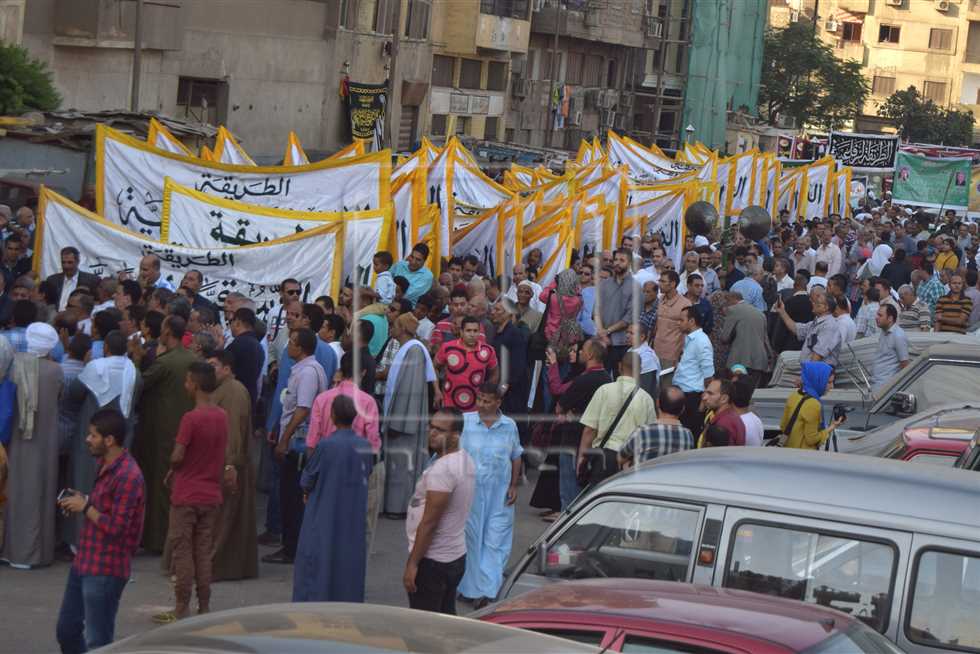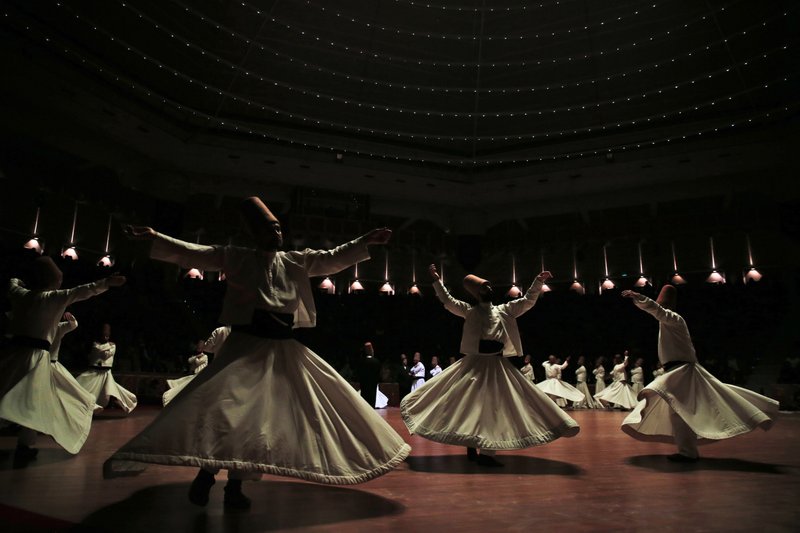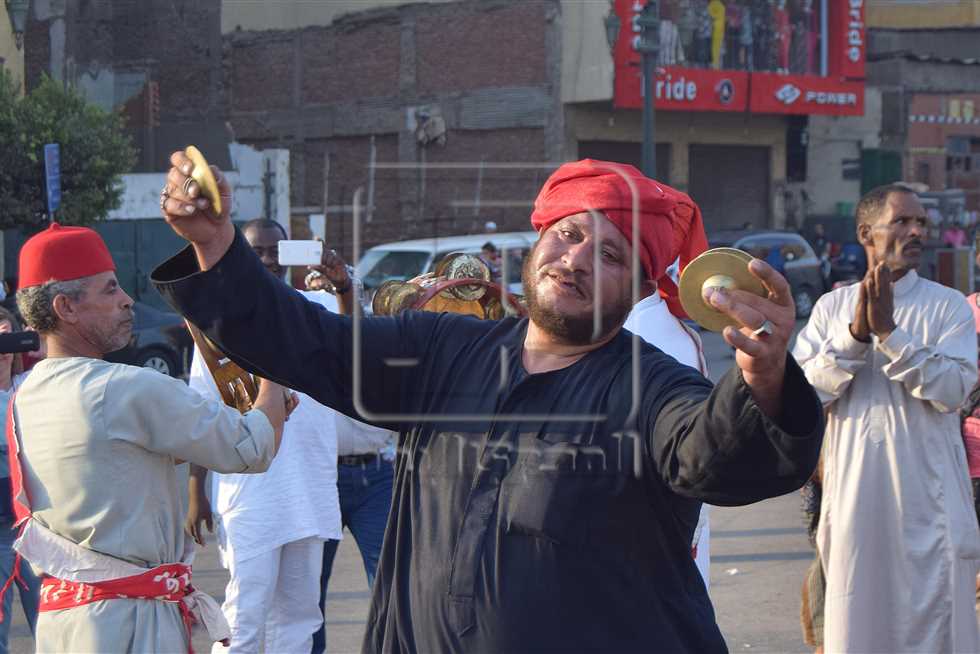Conflict has disturbed the serenity of the Supreme Sufi Council during the last few months due to a dispute over the succession of Ahmed Kamel Yassin el-Refaai, late Sheikh of the Supreme Sufi Council.
A disagreement between Sheikh Alaa Abul Azayem and Sheikh Abdel Hadi el-Qasabi, who both claim the right to such post, took on a legal dimension after el-Qasabi was elected and proclaimed the Sheikh of the Supreme Sufi Council. Abul Azayem, disputed the legitimacy of the election on the grounds that he is the eldest member of the Sufi Council and hence the rightful successor according to the Sufi code.
Abul Azayem filed a legal suit against the Sufi orders who elected el-Qasabi, claiming there was no publication of the result in the official Gazette and hence no legal validity.
To Abdel Hadi el-Qasabi, current Sheikh of the Supreme Sufi Council, the real problem is in the media coverage.
“Let me make the matter clear: The media projected the problem as if it is a dispute over the top seat of the council. But there is no feud. Because the matter was already settled,” el-Qasabi said. “Like all Egyptians the Sufi orders are regulated by the Law 118 of the year 1976–and I had hoped that whoever tackles the case would at least read the law. The law dictates that the successor of the Supreme Sheikh should be elected by the board members of the Supreme Sufi Council,” added el-Qasabi, who explained that the board includes ten elected sheikhs of Sufi orders and five representatives each of the ministries of the interior, of culture, el-hokm el-mahali, el-awqaf (religious endowments), and Al-Azhar.
“The election was held in the presence and participation of Abul Azayem who signed the results statement of the election,” said el-Qasabi while handing Al-Masry Al-Youma a copy of the official records of the election session.
The papers that certified el-Qasabi’s legal status also revealed the propaganda mix-up.
On 22 November 2008, two days prior to the election session, the council mandated Abul Azayem, (being the eldest member of the council) temporary authority to facilitate all monetary and administrative work of the council until the elections two days later.
According to researcher Abul Fadl el-Isnawi, who published a paper on the matter in Cairo Report, a publication of the Center For Political and Strategic Studies, Abul Azayem presumed he would continue to hold office, but the elections proved otherwise. He therefore filed a legal suit that alleges the incompetency of some 13 Sufi orders present in the council–including the el-Qasabia Sufi order that el-Qasabi heads–because the results were not published in the National Gazette.
“I believe that the verdict will be in el-Qasabi’s favor, for his Sufi order is well known and authenticated. After all el-Qasabi’s father used to be the Sheikh of the Supreme Sufi Council, and not being published in the National Gazette is a mere logistic mistake,” commented el-Isnawi on the possible verdict be declared this May.
Meanwhile, what is the difference between the two Shiekhs?
“There are lots of question marks regarding Abul Azayem’s affiliation with the shiaa due to his repeated visits to Iran, ” explained el-Isnawi. “Having declared that he will establish a satellite channel for the Sufis, his shiaa inclinations could cause chaos,” el-Isnawi added.
“On the other hand, if el-Qasabi wins, to begin with he is a member of the national party, his father was a member of the national party and used to encourage his followers toward political life, through the national party. Naturally his son would follow in his footsteps, a thing that parallels the government’s strategy in providing a greater role to the Sufis so as to confront the Islamic movements, be they political or religious,” said el-Isnawi, who added, “El-Qasabi is a projection of el-Sheikh Ahmed Kamel Yassin el-Rifaai, the late Sheikh of the Supreme Sufi Council.”



